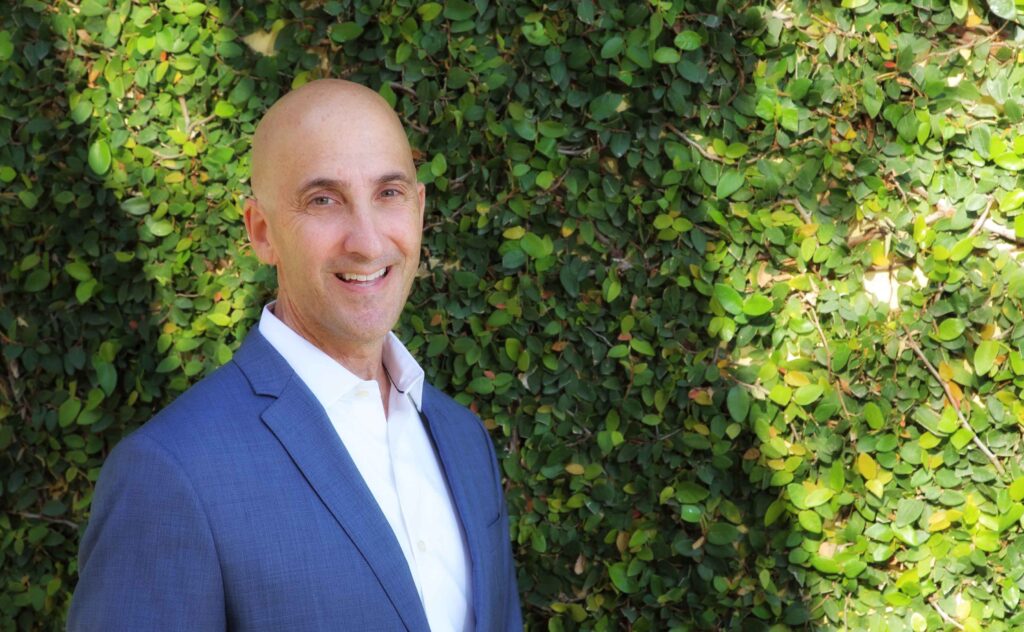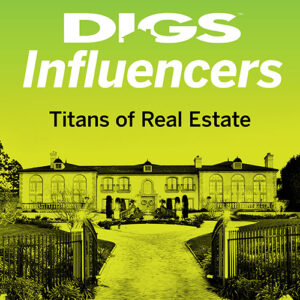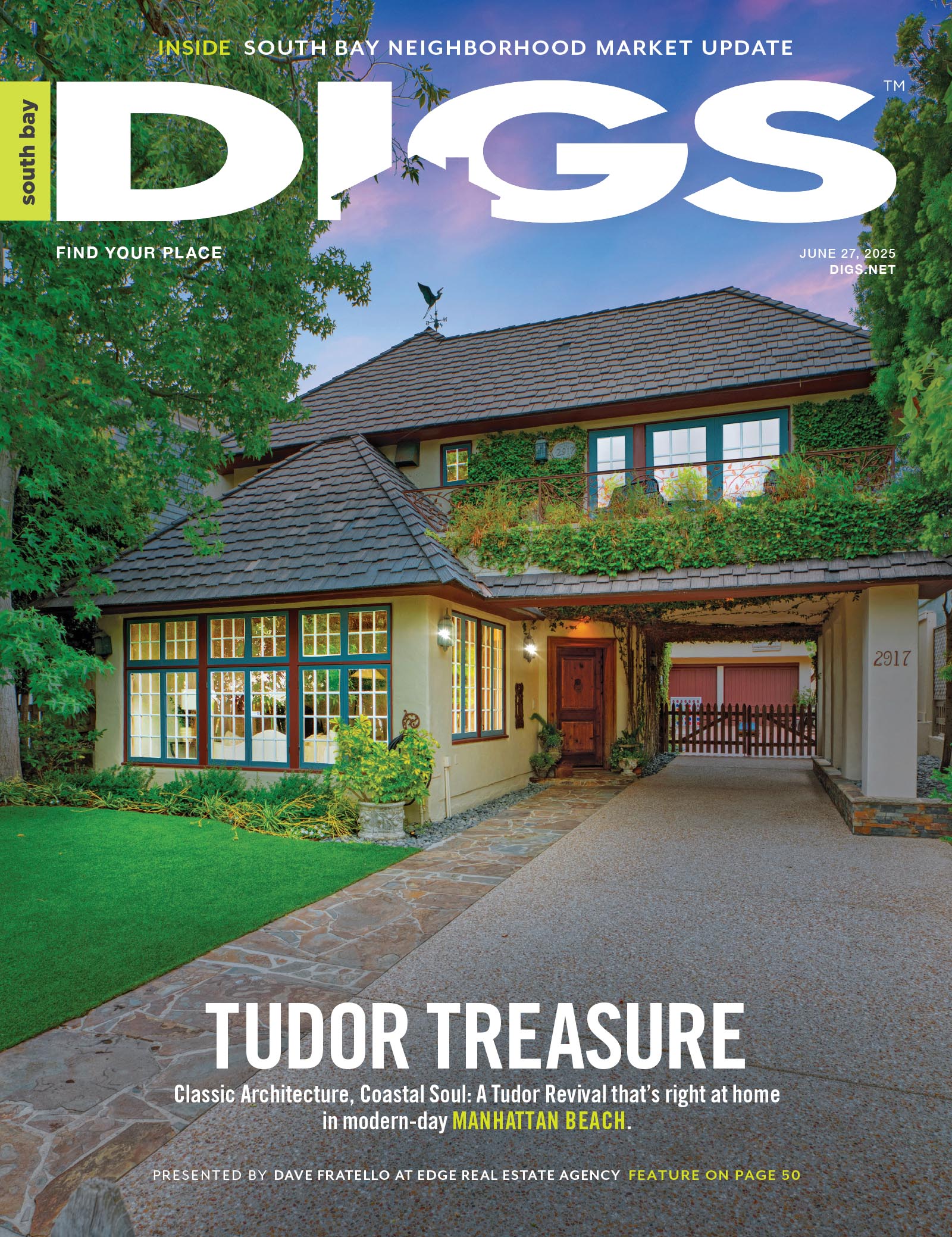Table of Contents

In this Episode
Learn how Anthony Marguleas reverse-engineered his real estate business, Amalfi Estates, into a leading charity by building into his model giving back at least 10% of all his commissions to charitable causes that change lives and living a more purpose-driven life.
Anthony Marguleas offers his personal insight and intel on the real estate market, how he’s championing & challenging all brokerages to give back and how he re-branded a one-block radius in Brentwood that allowed him to sell a home for 4x more than historical marketing pricing in the area. Bring your notepad and take notes as you’re sure to learn a lot from this episode. Please leave a review!
Top Quotes
“I tell my kids every day, what have you done to make a difference in the world? Because that’s why we’re here. It’s not how many cars or assets or much money we can have in the bank. Someone’s always going to have a bigger home or a nicer car or more money, but it’s really about how you can make a difference in the world. And I’ve been very fortunate that real estate has given us the vehicle in order to make a difference in the world.”
Tweet
“I’m a data guy. I love data and knowledge, and so I just self taught myself the contracts and four or five different MLSs and just learned as much as I could in order to give our clients the best experience that they could.”
Tweet
“At the end of our lives, when you look at your tombstone, do you want to say, ‘I’m the number one agent,’ or ‘this is how many homes I’ve sold,’ Or do you want to say, ‘this is how many families I’ve helped and this is how I’ve given back to the community?’ And that’s really making a difference in the world.”
Tweet
Episode Resources
Follow Anthony Marguleas
Follow along with Anthony Marguleas and Amalfi Estates:
amalfiestates.com
Check out Amalfi Estates’ youtube channel which is producing a wealth of property tours and educational information:
youtube.com/user/AmalfiEstates
Full Episode Transcript
Warren Dow: What does your billboards say?
Anthony Marguleas: I think what’s interesting is people say, how can you work so hard and if you truly love something that’s not work. And when I meet people who truly love their careers and have a passion for what they do and can get up every morning. I got to tell people I would do this if I wasn’t being paid because I love it so much, and so it’s not work.
[00:09:07] It’s just having fun every day and helping people. Having a positive attitude, I think is really the key to a, it’s not three words, but I guess passion. It’s one word. Excitement, positive attitude. [00:09:26] Warren Dow: Love it. Powerful. Inspiring. So speaking about inspiring, I want to get back to what I think you’ve done so uniquely and beautifully in this industry, and that is created this charitable organization around your brokerage, and it’s kind of like you reversed engineered a charitable organization by selling real estate, and you’ve done it on a huge level, you know, affecting thousands of families. [00:09:52] Tell us more about that. [00:09:53] Anthony Marguleas: We’ve been very, very fortunate. My parents were role models and they gave a lot to charity and their community and I have been slowly adapting and perfecting our charitable giving model for our company. We started off giving 100% from two transactions to two charities. Then we changed that and we gave 10% of each transaction from each home sale and we let the client pick the charity. [00:10:24] And then we realized about four years ago, we wanted to make a more impactful difference in our community. So we narrowed it down to five charities. So we do one for kids, which is Make a Wish. Those help kids with terminal or very serious illnesses. We have one for pets, which is SPCA. We have American Cancer Society for health. [00:10:47] We have homelessness, which is path. And lastly, we have Homeboy Industries, which is a local one. And we let our clients pick. And it really deepens the relationship, Warren, with your client, by allowing them to pick the charity. So it’s not us picking it, it’s a deeper conversation. You really develop a very strong relationship when you’re spending a lot of time with some of these clients showing them homes. [00:11:10] And what we’ve found is we have some clients will say, look, I remember one situation which was very, uh. It hit home, really hit to your heart. One of my clients said to me, Anthony, I know you have the five charities, but my granddaughter passed away from a rare heart condition playing soccer last month. [00:11:33] Would you be willing to donate to the American Heart Association? And I mean, how can you not get emotional when you hear something like that? It develops and you realize how much of a difference you can make in someone’s life when they’re sharing something as personal as that with you. So it’s just a deeper connection that you have with that person. [00:11:59] So we do make exceptions and we want to give back and. At the end of our lives, when you look at your tombstone, do you want to say, I’m the number one agent, or this is how many homes I’ve sold? Or do you want to say, this is how many families I’ve helped and this is how I’ve given back to the community? [00:12:16] And that’s really making a difference in the world. And my hope is with podcasts like this is that we can get other real estate agents to give back in whatever capacity they are able to. 1% 2% 5% maybe volunteering their time to whatever charity is meaningful for them, and that’s my hope. [00:12:39] Warren Dow: That’s a really inspiring, one of the reasons I got into this business was in the hopes to meet and work with people like you, Anthony, because I think people that are serving the local community in whatever capacity, would that be real estate or whatever that is. [00:12:55] There’s a deep relationship. And there’s business leaders and thought leaders that are in these local communities. And if you look at the real estate population, the agents, as you said, there’s 1.7 million of them in the country. And among those, there’s a few that are doing very important work and you’re one of them. [00:13:13] And so hats off to you and continue to do what you do because it’s inspiring and it’s making the world a better place. [00:13:20] Anthony Marguleas: Oh, thank you. We can always improve and we’re always trying to make things. Even better. And it’s kind of crazy. There’s 1.7 million agents, I gotta tell ya, one in 20 people you meet have a license. [00:13:33] And I think that’s why the real estate industry, I wrote an article for the wall street journal about 22 years ago, and it was comparing real estate agents. The number of hours it took to get a real estate license compared to 20 other professions. And we compared it to doctors and lawyers. And there was a direct relationship, Warren, on people’s view of real estate agents. [00:13:57] We’ve been ranked repeatedly on the same level or lower than used car salesman. And the reason was is because when it took 20 hours to get a real estate license, but it took a hundred hours to be able to dye someone’s hair, and it took, I think it was 150 hours to become a taxi driver at the time, while it’s 9,000 hours to become a doctor, and 6,000 hours. To become a lawyer, but at the time it was 20 hours to get a real estate license. And fortunately since then, they’ve upped the requirements and I think it may be a hundred hours, an hour or something to get a real estate license. But once they make it a lot harder, I think at a really elevate a lot of people in the real estate industry. [00:14:42] And once they get rid of dual agency, which we’re one of the only States in the country. That allows the same real estate agent to represent the buyer and the seller in the same transaction. I think it’ll help people’s vision or version or an impression of our industry. [00:15:02] Warren Dow: You know what’s interesting, Anthony? [00:15:03] In Australia, there’s one agent that represents the sale of a home. There’s no buyer’s agent. Did you know that? [00:15:12] Anthony Marguleas: Well, I know it makes sense because in California, the fiduciary duty is always with the seller. That’s why the seller’s paying the commission. The buyer’s agent is a sub agent of the seller and listing agent, and so a lot of people aren’t aware of that, that the listing agent, you really, the listing agent is really working for the seller, so it makes sense in Australia that they would have something like that. [00:15:37] But that sounds like dual agency as well, to a large degree. [00:15:40] Warren Dow: No, it is. It is. But it’s, uh, interesting that if you represent the seller, obviously your job is to sell the home period. So whether you call yourself buyer to seller, so they don’t pay 6% they’re probably paying 3% they’re paying half. So you could look at it the other way saying they’re doing both sides for what they would get on one. [00:16:00] But just interesting, I learned that because I have a friend in Australia and he got into real estate and he said. What’s with these buyer agents over here. So it was kind of fun. [00:16:08] Anthony Marguleas: A lot of States, they call them transactional brokers where they don’t have a buyer’s agent and a listing agent, but it’ll be interesting and commissions have changed. [00:16:17] It used to be 6% about 10 years ago. And with the internet, the average commission depends on the area. You know that people are selling properties, but on average it’s about 5% the upper operand of properties, it can be as low as four and a half percent but we definitely see a squeezing. On the commissions and what’s fascinating, there’s a huge influx of discount brokerages that are coming in, whether it’s a purple bricks or whether it’s open house.com and a lot of those, we’re using technology to change the real estate industry. [00:16:50] And I gotta tell you, I think change is good. If someone’s going to develop a better mouse trap, it’ll cause all real estate agents to have to do things better. So I’m a big fan of competition. [00:17:01] Warren Dow: Well, that’s good. I mean, technology is. It is what it is, but it creates efficiencies, right? And we live in this connected digital economy now, and we’re surrounded by technology that’s getting more advanced and more advanced every year and decade. [00:17:14] So it’s going to make industries more efficient. And that’s code for disrupt. A lot of industries. Real estate has been a juicy one because it’s one of the biggest industries, and it’s one that’s been sort of archaic in terms of how it’s. Model is with all the layers of, you know, that are involved in the transaction and the commission structure. [00:17:36] So it’s interesting there’s being crazy amount of money, bet to, you know, make this industry more efficient. And you’d look at this direct to consumer model, that discount broker model. It brings me to, I wanna get your thoughts on, you know, high end real estate is different than selling a track home in Fresno, right? [00:17:56] Those types of communities might be more. Susceptible to an eye buyer format, a $9 million home in Pacific Palisades. Tell me about that. In an eye buyer world, does that work? [00:18:08] Anthony Marguleas: I mean, what’s interesting is regardless of the models that are coming out, it’s the agents that have the knowledge behind it. So. I think maybe a lot of the technology companies, investment bankers that are getting into the real estate play, they don’t really have the people on the ground that have the intimate knowledge that’ll allow their companies to be as successful. [00:18:32] So, for example, I’ve previewed 6,000 homes in the Palisades alone, and I have notes on all 6,000 homes. And to have that knowledge base, there’s 13 sub markets just in the Palisades. The average area in Los Angeles has five or six sub markets, so Santa Monica, Brentwood, those each have five or six sub markets, sub markets being North of Montana, sunset park, ocean park, Gillette region square, for example, in Santa Monica. [00:19:03] Those are sub markets, and the Palisades has doubled the number of submarkets in any other market in Los Angeles. So it’s much harder for someone to break into. We’ve been very, very fortunate. We’ve been the number one agent in the Palisades for the past five years. We’re selling based on number of transactions and on dollar volume, 50% more homes than the number two agent. [00:19:28] And a lot of it just comes into play because of the knowledge that we have and we’re constantly trying to improve. We have things to differentiate ourselves. Worn. For example, we have one on one coaching that I. Pay for, for each one of my sales partners that they’re able to do twice a week, one on one individual coaching with one of the top coaches in the United States. [00:19:51] It’s Workman success systems. We’ve been using them for about three years. So there’s just things like that. Always trying to improve, taking advanced negotiating classes at Harvard business school this summer because I thought it was really important. If you’re negotiating the largest investment in people’s lives. [00:20:09] It’s really good to have that. I also teach real estate negotiating and contracts at UCLA. I’ve been fortunate doing that for about 13 years, so we’re always learning and that’s what I love about it. If you think you have all the answers, you’re not going to be doing a as much of a benefit for your clients. [00:20:28] Warren Dow: I love it. You know what you know? And that’s what you know well, so getting into these sub neighborhoods and it’s kinda like its own vernacular, its own language, right. Didn’t you create Norman estates? Is that, tell me about that. [00:20:41] Anthony Marguleas: I did. I did. So it was interesting. There was a property in Brentwood. It was, I guess you could say overbuilt for a neighborhood. [00:20:49] We’re asking, I believe it was 12 million at the time, and the average price range on that street was closer to two to 3 million. So we don’t want to say outside the box, cause that’s a little overused terminology. But what I realized, several top agents in Brentwood were saying to my client, who was a developer, there’s no way you’re going to get more than 6 million or 7 million because the neighborhood just cannot support it. [00:21:16] So what we did is we use data and we analyze that there was literally a one block area that had very large estates. And so I said, let’s rebrand this neighborhood and call it Norman estates. Several of the homes around there had long driveways. They were gated, some of them had tennis courts, and so we rebranded a neighborhood calling it Norman estates and basically sold that lifestyle in that concept, and we were successful in selling that property. [00:21:46] Warren Dow: That’s a great story. [00:21:47] Anthony Marguleas: Yeah. It was kind of fun. [00:21:49] Warren Dow: Great story. And that’s some of the obviously, intangible value and value add that you bring. I mean, that’s remarkable that you created that much more value. [00:21:57] Anthony Marguleas: Yeah. So people would come by and I’d say, well, you’ve heard of Norman estates, right? And of course they don’t want to look like they don’t know. [00:22:03] So they’re going to say, yeah, of course. And then you’re kind of perpetuating, creating your own market, if you will. [00:22:10] Warren Dow: Looking for a personal stylist for your home. Check out Bo concept. One of their design consultants can help you make the most out of your space. No request is too big or small for living, dining, sleeping home office and outdoor spaces, and check out their Southern California showrooms in orange County, in Costa Mesa, and also in Los Angeles on LaBrea. [00:22:29] For more information, visit Beau concept of Bo concept.com email info@beauconcept.la. Let’s talk about the market real quick. I mean, we hear all the rumblings. Listen to the news, read digs magazine, of course, [00:22:45] Anthony Marguleas: to learn, especially DIGS Magazine, [00:22:48] Warren Dow: you know, we’re entering the end of the real estate cycle. The market’s slowing down. [00:22:53] What are your thoughts in terms of [00:22:55] Anthony Marguleas: how much time do you have, Warren? [00:22:56] Warren Dow: I know you gotta make it quick, concise, and you’re okay. [00:23:00] Anthony Marguleas: Yeah, I love stats. So the bottom of the market was in 2011 previous peak of our market was in 2008. We’ve seen a little more than a hundred percent appreciation on the West side of Los Angeles in the last seven years, 2016 because of the volatile election year was a very flat market, and we actually did not have much appreciation in 2016 every other year since 2011 we’ve averaged about 11 to 12% and this is for the whole West side, Santa Monica, Brentwood, Palisades. [00:23:36] 2018 we saw a 7% appreciation. So the rate of appreciation has slowed from the average of 11 and 12%. We predict in 2019 we’ll have a three or 4% appreciation, and then 2020 since it’s an election year, and I have to be clear and say a volatile election year, because there’s a lot of uncertainty, we expect that to be a flat market of zero appreciation in that marketplace. [00:24:05] The number of transactions over the last five years has dropped five straight years. So we’re seeing less homes selling. We believe we’re close to the peak of the market right now, and so we just recommend to our clients that they really need to be very, very careful about buying now because when they have to sell, they have to sell for a minimum of 6% more than they bought to cover the closing cost. [00:24:30] I can emissions. Escrow fee title fee. So if they’re going to pay a million or 2 million or $3 million for a home and they have a 6% closing costs, they have to really make sure that they don’t lose money on their investment. [00:24:44] Warren Dow: How big of an influence is international money coming in? I know in development it was, [00:24:49] Anthony Marguleas: it’s [00:24:50] Warren Dow: been big, [00:24:51] Anthony Marguleas: [00:24:51] so I’m a contrarian thinker, Warren, and so a lot of times in the news you hear people talking about interest rates are going to have a big effect on our market. [00:25:00] The foreign buyers. Springtime is a good time to sell, I think the opposite of most of those scenarios. So to answer your question, the foreign investment in Los Angeles, it’s actually about 13% and out of that 13% the only two neighborhoods that make up a bulk of that is Beverly Hills and Bel air, because they have a lot of the name recognition. [00:25:22] When you’re in China, when you’re in the UK, Brentwood isn’t as strong of a name to invest in Pacific Palisades isn’t as well known. It’s really Beverly Hills and Bel air. And so the 13% of the foreign investment I’d say about a majority is made up in those two neighborhoods. And like I said, 13% isn’t a large percentage base regarding interest rates. [00:25:47] Cause I know a lot of people talk about interest rates and how they have effect on the market. The reality is they have an effect on the entry level marketplace, and that would be Culver city, Westchester, parts of the Valley. So when you’re buying $1 million home and you’re getting a $700,000 loan, interest rates are a lot more influenced on a purchase market. [00:26:10] But in most of the neighborhoods on the West side, interest rates play a very, very small role. And what we’ve seen over the last three or four cycles that we’ve been selling real estate. Is that if someone falls in love with a home, what they’re going to do more, and if they have a 30 year fixed program of let’s say 4% and rates do go up a half a percent, they’re just going to go to an adjustable rate mortgage. [00:26:35] They’ll do a 40 year amortized loan. They’ll do some other type of loan product, maybe interest only in order to get that property at the same payments that they originally were going to get a 30 year fixed for. So we haven’t seen too much of an effect and interest rates would have. Although you do hear on the news a lot that they would have a lot more of effect than they do. [00:26:55] Warren Dow: Interesting. Interesting. So switching gears and talk about more about the industry, what’s the biggest change you’ve seen since you started? That was a while ago. [00:27:03] Anthony Marguleas: Yeah. When I had a full head of hair. Little change, ran a gray beard. Um, so what’s fascinating, I love change in the market, so I’ll answer the question a little bit different. [00:27:15] We’ve seen more change in residential real estate. In the last five years than we’ve seen in the last 25 years. And the reason that is, is consolidation and new business models in the marketplace. So when you have more consolidation, when you have, for example, Pacific union via their fidelity title, arm purchasing, John era on associates. [00:27:43] Gibson, international and partners trust. And then a month later them getting bought by compass. And then you see Telus getting sold and you see all these other consolidation of real estate firms. It’s very, very interesting. And you see all the new players coming in, so it’s good to keep an eye on it. And you mentioned the I buy or model, which is a very interesting model. [00:28:07] It doesn’t really hit the Westside of Los Angeles. But it is hitting a lot of the markets throughout the country. It’ll be very interesting to see. So I see a lot of change there. I see a definitely a change and pressure on commissions. I see a lot more consolidation. So that’s going to be very interesting. [00:28:27] I think if you’re a middle market real estate firm, you’re going to have a lot of issues. I think the big companies will do well, and I think the smaller companies will do well, but I think the middle size companies. May have a little bit more challenges in this [00:28:41] Warren Dow: marketplace. Interesting. So niche boutique will always have their place? [00:28:46] Anthony Marguleas: I think so, yeah. I mean, they can move a lot quicker if we need to change course and put a lot more of our marketing in a certain area. We can pick up the phone and call you are in and say we want to do a, you know, a whole different spread and what you’re doing and your magazine with your social media and with all the branding that you’re doing, cutting edge with these podcasts. [00:29:08] You’re evolving and you’re adapting and you’re giving consumers and real estate agents what they really need. [00:29:16] Warren Dow: I really appreciate that and I appreciate the partnership and yeah, we’re much akin to philosophy of giving as much or more value than we ask in return. And we’re constantly trying to better ourselves and to disrupt ourselves and you know, do the right thing. [00:29:30] Anthony Marguleas: Warren, I think a key differentiation. It’s easy to get jaded in this market. It’s easy to, you know, when you’re writing as a buyer’s agent, when you’re writing seven offers for every buyer before one gets accepted, 25% of escrows fall out of escrow. There’s a lot of competition. Um, it easy to get jaded. I think it’s all about having the right attitude. [00:29:53] I’m a big proponent of the plentiful mentality and not the scarcity mentality. And there’s a great book, it’s called the Oz principle. If any of your listeners have a chance to read it, the Oz principle is a fantastic book, and it talks about above the line thinking and talks about not being a victim and talks about viewing things on the positive. [00:30:15] And really, you know, life’s always gonna throw stuff at you, but it’s how you overcome it. And I think there’s a lot of good lessons in that book. So I really, really believe in the plentiful mentality. [00:30:28] Warren Dow: That’s awesome. So Anthony, on the charity, why is it so important to you? [00:30:34] Anthony Marguleas: When my kids were younger, I have four children. [00:30:36] We had four kids under four years old. And it’s interesting, the background story. So I had cancer 26 years ago and I was giving a 20% chance of to live. I had a stage four cancer. And back to the plentiful mentality. I was very fortunate getting cancer and that I met my wife who was my primary nurse in the hospital. [00:31:02] And you have a different perspective on life when you’ve gone through a life changing situation, and I’ve told my kids every day, what have you done to make a difference in the world? Because that’s why we’re here. It’s not how many cars or assets or much money we can have in the bank or. In our area, how many homes someone can buy. [00:31:24] Someone’s always going to have a bigger home or a nicer car or more money, but it’s really about how you can make a difference in the world and been very fortunate that real estate has given us the vehicle in order to make a difference in the world. I have a weird relationship with money I’ve seen when I was in the hospital, I went from an adult hospital to have my bone marrow transplant at a. [00:31:49] Children’s hospital when I was 26 years old because the cancer I had mostly affects children. And I realized how happy all the kids were. They were the happiest I’ve ever seen. And when I came from the adult hospital, I, all the adults were very depressed and very sad. And I realized the more money people have, the more unhappy they usually are. [00:32:10] You go to a sporting event and you look at the first 10 rows, and most of them are empty and people are on their phones and. No one’s smiling and you go to the top 10 rows in any stadium and they’re paying $10 seats and they’re jumping up and down and they’re wearing all the gear and they’re the most excited they can be. [00:32:27] And so my weird relationship with money is I want to give it all away because I think money is the root of evil. And a lot of ways, I think people fight over it. I’ve seen families break up over it. Once a family member passes away, they’re fighting over the assets. They’re fighting over the property. And I just think it’s, I love Warren buffet and their whole model and bill Gates and the 99% giving pledge. [00:32:55] And I would love nothing better than to give 100% away, although my wife’s not in agreement yet with four kids. But that’s my belief. [00:33:05] Warren Dow: We toss them so. On this continued in accelerating industry consolidation. What do you think is driving that? Do you think there’s a benefit to being bigger? Is it truly better or is it survival? [00:33:20] Anthony Marguleas: It’s a good question. I think, I know I have several friends that work at certain firms and I know because of the consolidation, without their choice, they’ve been at four or five different firms in the last 12 months. And I know how challenging that can be for their clientele, for their peace of mind, the disruption. [00:33:40] I know a lot of the larger firms that are orchestrating the consolidations aren’t taking into account the company culture. And can you imagine, I mean, if you’re trying to think of a, as a car. Trying to Mercedes Benz and BMW and Hyundai and Volvo, and they all have different, the way they operate. They have different cultures and they have different visions for their companies. [00:34:06] And when they meld them all together, it’s really, really challenging. I think the consumer is having a tough time with it. In some cases. I know the agents are for sure. So what’s driving it? What drives everything the money? Um, I think the large companies. Who are, some of them are very, very well funded. [00:34:25] Some of the companies have off the chart earnings ratios that are not in line with a regular brick and mortar company. So they, some have $4 billion evaluations. Some of them are being funded by like SoftBank that was funded by the Alibaba billion dollar company, and there’s the company SoftBank has, they basically have more money right now at their disposal. [00:34:51] I have to double check the exact amount. I want to say it’s $175 billion. They could purchase every single real estate company in Los Angeles and still have money at their disposal, and so they’re throwing so much money at a lot of these new models because they have so much money to throw. [00:35:08] Warren Dow: You know, my background for a good part of my career was in commercial printing. [00:35:13] It’s been a little over 15 years in commercial printing. And the real estate industry is similar in a weird way in that it’s so fragmented. There were so many mom and pop printers and the printing industry has been disrupted as well, but that fragmentation was immense. So you look at who has share and how you gobbled up, and if that gobbled up share actually does anything to you. [00:35:37] Like real GE, for example, they own Century 21 [00:35:40] Anthony Marguleas: era, [00:35:40] Warren Dow: either a Sotheby’s, what do they have? What’s their market share in America? I’ve heard between 10 and 12 13% does that sound right? [00:35:51] Anthony Marguleas: Probably. Yeah. I don’t know the exact numbers on that, [00:35:55] Warren Dow: but that’s when you think about that brand and those brands and how big they are. [00:36:00] That’s crazy to think. That’s a tiny share when you think about it. [00:36:04] Anthony Marguleas: Yeah. No, you’re right. The independence make up a pretty large percentage. The Indies, they call them. Surprisingly, a very, very large percentage of the real estate market is made up from the independence. So, [00:36:17] Warren Dow: so on the consumer side, what are your thoughts on this sort of shift in mentality where the Zillows and truly a, as these search portals have really been consumer focused to try to control the search and. [00:36:32] And all that. How do you see that played out? [00:36:33] Anthony Marguleas: I think it’s great. I think change is good. I mean, 10 years ago, Zillow wasn’t around. Redfin wasn’t around. Compass wasn’t around. Look, Zillow and Redfin have so much money behind them. They can develop so much better. MLS is and search engines. Then even the best MLS is around and there’s huge consolidation from molasses. [00:36:54] I mean, there was something in the neighborhood of. 5,000 or so. MLS is 10 years ago, and now I think it’s down to a thousand or less. So we’re constantly seeing consolidation. There’s talk about having a one nationwide MLS just for brokers. So I think it’s always improving. I think Zillow has put together some really, really good mapping systems. [00:37:17] They put together some really good knowledge. Our role is real estate agents. Warren has changed drastically. We’re no longer there to find somebody a house. A lot of times our clients will find properties well before we will. And so our role really is to provide negotiating the contracts. Our goal is to be able to provide insight on local neighborhoods. [00:37:40] Our goal is to really provide access to our vendor list so we can really save money on. Once they able to find a property, you know, look for any issues that may come into play and really helping them value why this property is worth what it is and how they can add value to it. So much bigger system. [00:38:00] We’re much more of a consultant. Then, Oh, here’s a property I found for you because of the internet is making it much easier for them to do that. [00:38:07] Warren Dow: Yeah. To be the most trusted advisor. [00:38:10] Anthony Marguleas: Yes, yes. Yeah. That’s, [00:38:12] Warren Dow: that’s how we roll to Anthony. So real quick on getting back to the agent population, I’m always fascinated by the 80-20 rule, and we use that a lot in our business. [00:38:20] 80 20 rule, 20% of the agents are doing 80% of the business. 20% of X are doing 80% of why. In hyperlocal, high end real estate. It’s probably a lot more, 90-10 whatever. But let me ask you, because you’re a thought leader and a leader in this industry, what advice would you give to someone in the 80 group? [00:38:39] Anthony Marguleas: Well, I do agree it’s 80-20 and it’s really probably closer to 10% of the agents are doing 90% of the business. I would recommend to anyone getting into real estate to really have a niche. And that niche can be geographical. They can really specialize. I know some agents have their whole careers on one building and Mid-Wilshire. [00:39:03] And then you have a very, very successful living just farming that one building. So have a niche. We changed our business model 15 years ago from buyers only agents to luxury real estate and rebranded our company. So whatever your niche is, be as good and as knowledgeable as you can on that niche. It could be first time home buyers, it could be vacation homes, and really, really focus on that. [00:39:29] And learn as much as you can about that marketplace. Learn what the average cost per square foot is, what the median cost is. Really dig deep into the data and really understand what the data means. We found you really have to look at annualized data rather than monthly or quarterly because monthly or quarterly is just too small amount of data to really drive and understand. [00:39:53] Is that a sellers market? Is it a buyer’s market? No, at the unsold inventory indexes for any market that really tells you whether it’s a good time to buy or not buy and get a mentor, find somebody that you really look up to that has the experience. Unfortunately, in our industry, someone can be in real estate 30 years and maybe they’ve sold 20 homes in 30 years. [00:40:15] So we’ve been very fortunate. We helped 75 families a year buy, sell, and lease a home. So get on a team. And be with a top team that’s selling 75 or a hundred homes a year and you’ll get more experience in one year. Warren, that agent will then most, if they’re in there on their own for 10 years. So join a team, specialize. [00:40:40] And lastly, what we really recommend, and it’s hard for a lot of sales agents who are really high eyes and very social, is we highly, highly recommend as a model is to overdeliver. And under commit. So what I mean by that is we’re constantly running into agents who tell their clients, Oh, we’re going to get five offers today, and then the offers don’t come in. [00:41:02] And so we wait until we actually get an offer in hand. We really want to under commit and be really conservative, which I think is hard for a lot of people that are quote salespeople. So that’s great. I recommend. [00:41:17] Warren Dow: So in closing. Let’s try to learn a little bit more about Anthony, the non real estate mogul. [00:41:25] What are your, some of your favorite sports teams, restaurants, [00:41:29] Anthony Marguleas: a real estate mogul, but Friday [00:41:32] Warren Dow: I’ll give you that label and appreciate that. [00:41:33] Anthony Marguleas: So what do I do when I’m not selling houses? Yes. Well, I like to travel. I like to spend time with my kids, my beautiful wife. I got very lucky. And yeah, I’m a private person. [00:41:46] That’s all we’re going to get. One thing I really enjoy talking to other people and learning about them because I don’t enjoy talking about myself much. I don’t do social media. I know I should be doing more social media. You know, it’s interesting. The average age in real estate is 70 years old and I think there’s a huge shift in the next 10 years where. [00:42:09] If the average age of real estate agents are 70 but the average age of a consumer is 25 or 30 and those 70 year olds are not in touch with Instagram and all the other posting and the social media and how they want to receive their information. There’s a huge opportunity there for people getting in the business, so that’d be very, very interesting to see. [00:42:30] Warren Dow: Yeah, agreed. All right. So thank you so much, Anthony, for joining us at the digs influencer podcast. We appreciate your time, your wonderful, wonderful thoughts and thanks for sharing. [00:42:42] Anthony Marguleas: You’re welcome, Warren. I appreciate it. Anytime. [00:42:45] Warren Dow: So if anyone wants to get in touch with you, how would they reach you [00:42:48] Anthony Marguleas: are a website’s probably the best way, and that’s a Morphe estates, like the Amalfi coast in Italy. [00:42:54] So that’s AmalfiEstates.com and I’d love to help any of your listeners or even fellow agents, they’re happy to call me and my office. I’m very accessible. And I would love to help any other real estate agent use the same model of the 10% giving. We’ve learned a lot over the last four years and I’m happy to. [00:43:18] It’ll definitely help not only your business, but it’ll help your community. It’ll help you retain more agents if you have a team, and selfishly, it’ll make you feel good. So happy to do that. [00:43:30] Warren Dow: Awesome. Thanks again, Anthony. You’re welcome. [00:43:40] and that wraps up this episode. Thank you for tuning in and we hope you found some value. Please share, subscribe, and leave a review. Find us on iTunes and your favorite podcast provider. Until next time.










